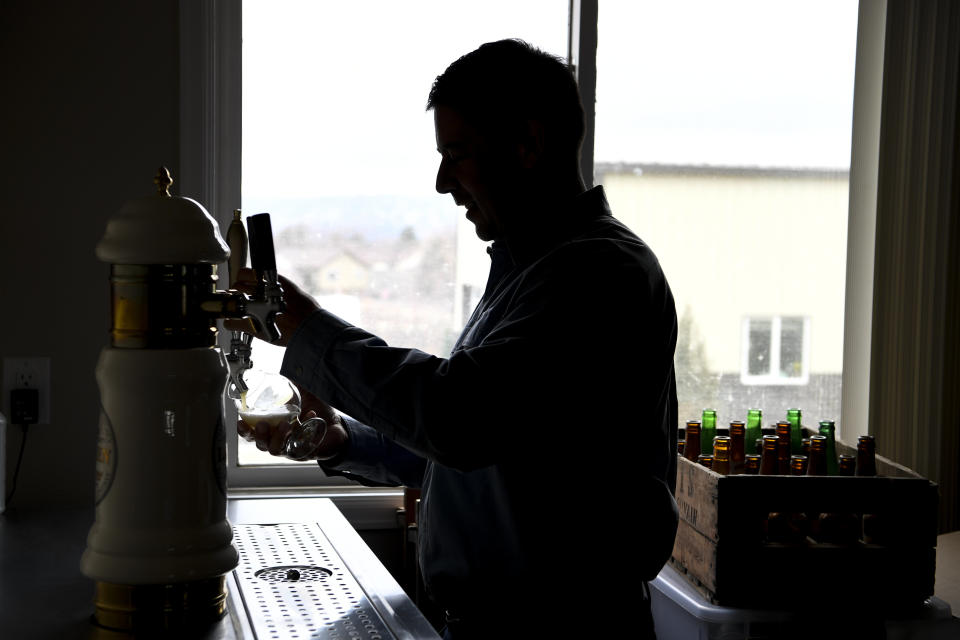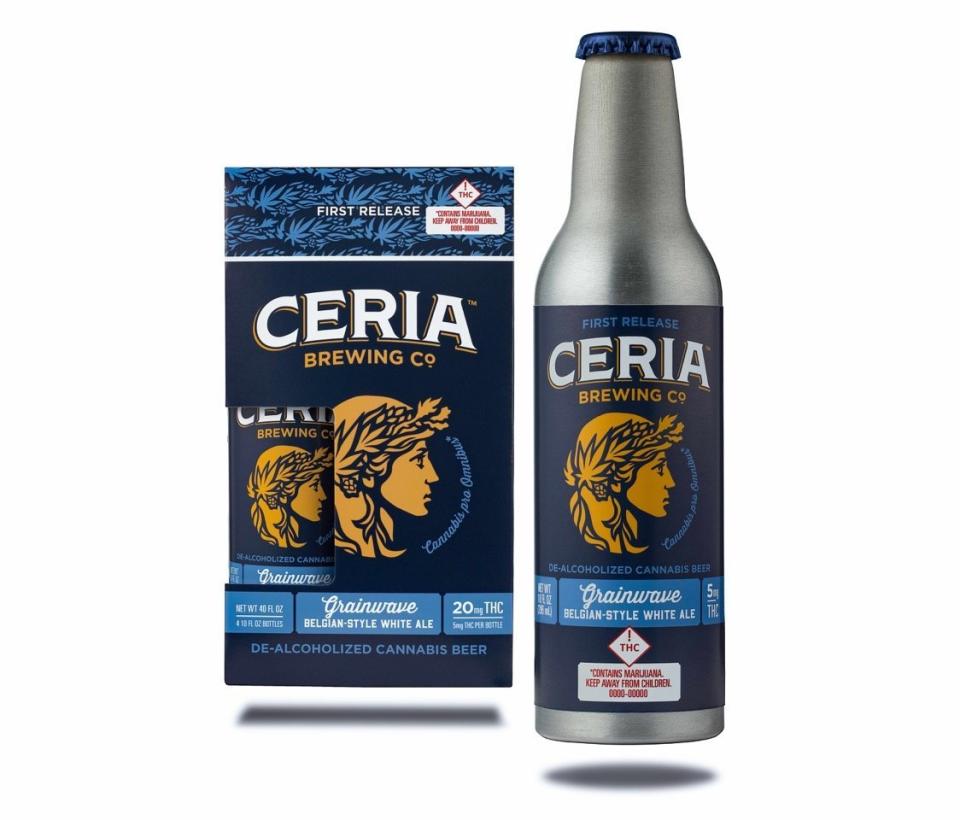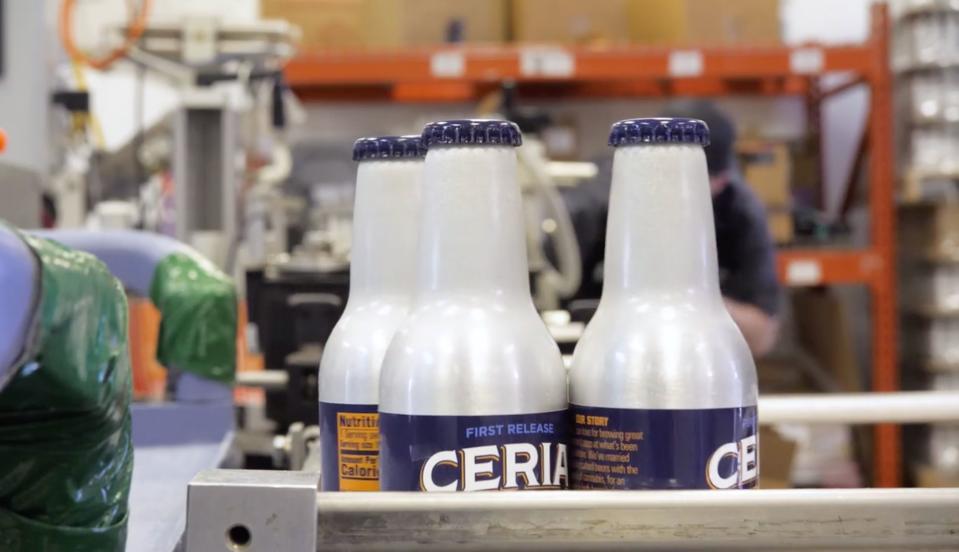Blue Moon's creator launched a cannabis beer that sold out in 4 hours
Keith Villa achieved a Ph.D. in brewing sciences at the University of Brussels, launched what many consider to be a craft beer pioneer in Blue Moon, and had just retired after a 32-year career at America’s second largest beer maker Molson Coors.
But he just couldn’t bring himself to hang up the brewing cleats as he watched the cannabis wave hit Colorado.
Twenty-four years after Villa finished his most famous recipe for the new beer at Coors Field that came to be called Blue Moon, he’s expanding his own brewing operation and line of cannabis beers that appear to be just as pioneering.
Just four hours after debuting his new Ceria Brewing Co. non-alcoholic, marijuana-infused, Belgian-style ale in Colorado dispensaries last December, it sold out.

“It turns out a lot of cannabis products are popular for Christmas gifts,” he told Yahoo Finance YFi PM, adding that he’s seeing more and more first-time cannabis users as customers. “You don’t taste cannabis you taste great tasting beer with the effects of cannabis and that’s really critical because we found that the taste of cannabis is really polarizing. Some people love it, but most people don’t really care for it.”
That fact is at least partially responsible for the incredible growth forecasts analysts are projecting for the cannabis space in the years ahead. According to BDS Analytics, beverages made up only about 5% of the annual U.S. edibles market, with sales of $30 million. By 2022, cannabis beverage sales are expected to expand by more than 10-fold, to $374 million.
That growth opportunity has attracted more than just Villa’s Ceria Brewing Company. His beer now joins first mover Cannabiniers’ Two Roots brand of THC-infused beers in the race against the brewing behemoths, which have increasingly partnered with Canada’s leading marijuana companies. Corona importer Constellation Brands invested $4 billion in cannabis company Canopy Growth to pursue development of cannabis-infused non-alcoholic beer for sale in Canada by October when they are slated to be legalized. Molson Coors set up its own joint venture with Canadian cannabis company Hexo Corp. to pursue the same goal.
But there is a little-known legal distinction in the law that Villa said might help his smaller non-alcoholic beer venture take on the brewing giants.
“A lot of people don’t realize that cannabis is legal federally in Canada right now, but only the smokable forms,” he said. “Drinkables become legal this October ... [but] part of the ruling in Canada is you cannot use any existing logos or names of beverage companies that are associated with alcohol.”
Separating from the pack
Similar to Two Roots, Ceria is looking to establish brand power by expanding to multiple states in the U.S. before the major brewers introduce their products in Canada. Villa said overwhelming demand for his first batch led to not only building out his Colorado operation in March, but also his decision to expand distribution to California and Nevada dispensaries within the next three months.
Due to federal restrictions on interstate cannabis commerce, Ceria will distribute the non-alcoholic beer base across state lines before infusing batches with THC in each state ahead of bottling. State and federal law both prohibit combining alcohol and marijuana in beverages for sale.

True to the craft brew brand, Ceria’s expanded product line will also include varying doses of the psychoactive compound THC to meet consumer needs. Villa said Ceria will soon offer a non-alcoholic IPA with 10mg of THC and 10mg of the non-psychoactive CBD, as well as a light beer with just 2.5mg of THC.
“We’ve heard from a lot of young people who say they want to remain in control,” Villa said, adding that the beers’ low doses allow them to be consumed casually. As for Ceria’s target demographic, it’s not just younger users who may already be comfortable with cannabis.
“There are so many people who want to try it,” Villa said. “Maybe they had a bad [smoking] experience in the past … but there are others who have this strong stigma [against marijuana] and don’t want to be seen going into a dispensary.”
At a price point of $7 to $8 per 10-ounce beer, Ceria’s price point is a bit more expensive than a beer drinker might be accustomed to paying, but the product obviously comes with different effects than a traditional beer. Villa’s Belgian-style THC-infused beer can also only be purchased at about 16 Colorado dispensaries scattered throughout the state. However, Villa hopes customers in California will eventually be able to have his products delivered directly to their homes when the company expands later this year.

Villa declined to disclose launch-to-date dollar sales citing competition concerns, but projects that the category’s growth could exceed analyst expectations if cannabis is legalized on a federal level. Ceria recently closed its Series A fundraising round, bringing on at least one institutional investor — the first since Villa and his wife, Jodi, self-funded the company in early 2018. An SEC filing from February showed an earlier intent to offer about $20 million in the venture, but did not list outside investors.
Whether or not Ceria can duplicate the success Villa saw with Blue Moon remains to be seen, but at the very least, the husband-and-wife duo agree that the startup life trumps relaxing in retirement.
“If you’re a brewer like me and you’re always experimenting, it was awesome,” Villa said. “We chose to retire and chase this dream of launching the cannabis brewing industry.”
Zack Guzman is the host of YFi PM as well as a senior writer and on-air reporter covering entrepreneurship, startups, and breaking news at Yahoo Finance. Follow him on Twitter @zGuz.
Read more:
Constellation Brands shareholders are getting Canopy Growth almost for 'free': Canopy CEO
Exclusive: Canopy Growth to invest up to $500 million in hemp production in U.S. states

